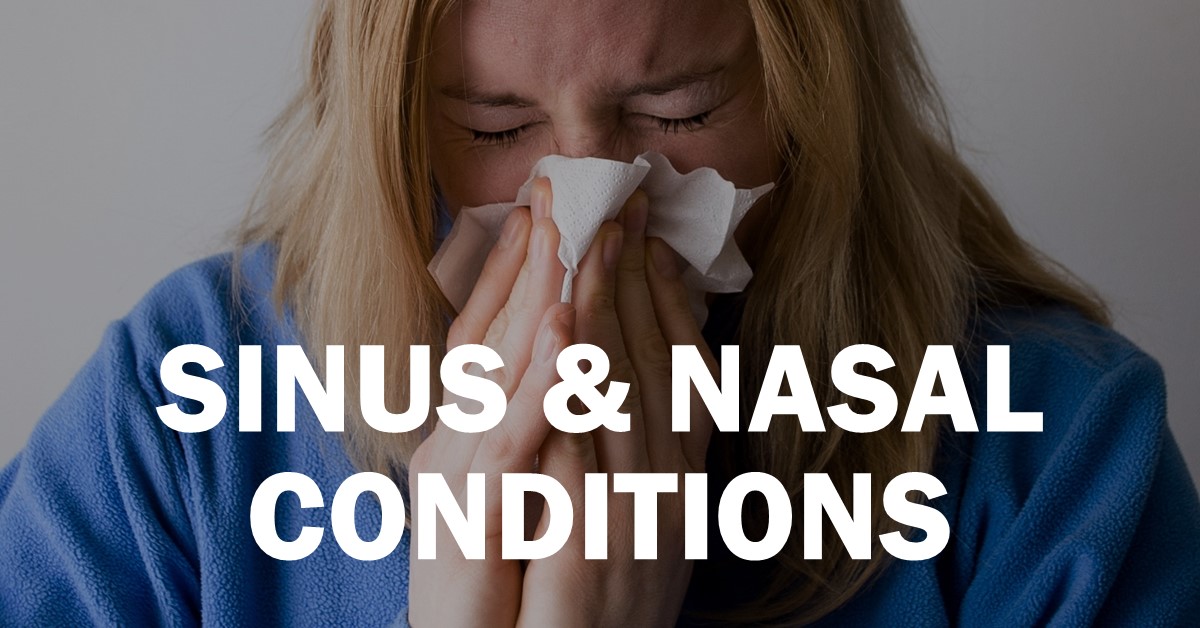Drip, Drip, Hooray? Not Quite. What to Know About Post-Nasal Drip in Beacon Falls, CT
Post-nasal drip is a common condition that occurs when excess mucus accumulates in the back of the nose and throat. While mucus production is a normal bodily function, an overproduction or thickening of mucus can lead to discomfort and irritation. If you’ve ever experienced a constant need to clear your throat or a persistent cough, post-nasal drip may be the culprit.
Causes of Post-Nasal Drip
Several factors can contribute to post-nasal drip, including:
- Allergies – Seasonal or environmental allergens like pollen, dust, pet dander, and mold can produce excess mucus.
- Colds and Flu – Viral infections often lead to increased mucus production, resulting in post-nasal drip.
- Sinus Infections – Sinusitis can cause thick mucus that drains into the throat.
- Weather Changes – Cold air, humidity, or sudden temperature shifts can stimulate mucus production.
- Irritants – Smoke, strong odors, perfumes, and air pollution can irritate nasal passages, leading to excessive mucus.
- Acid Reflux (GERD) – Stomach acid backing up into the esophagus can mimic post-nasal drip symptoms.
- Medications – Certain medications, like those for high blood pressure, can increase mucus production.
Symptoms of Post-Nasal Drip
Post-nasal drip can present with a variety of symptoms, including:
- Frequent throat clearing
- Persistent cough, especially at night
- Sore or scratchy throat
- Hoarseness
- A feeling of mucus stuck in the throat
- Bad breath (halitosis)
- Nausea (if mucus is swallowed in large amounts)
Treatment and Management
Managing post-nasal drip involves addressing the underlying cause and relieving symptoms. Here are some effective treatment strategies:
Home Remedies
- Stay Hydrated – Drinking fluids helps thin mucus, making it easier to drain.
- Use a Humidifier – Adding moisture to the air can prevent nasal passages from drying out.
- Nasal Irrigation – Rinsing nasal passages with saline solutions (such as a neti pot) can clear excess mucus.
- Steam Inhalation – Inhaling steam from a bowl of hot water or taking a warm shower can loosen thick mucus.
- Avoid Triggers – Identify and minimize exposure to allergens, smoke, or strong fragrances.
Medical Treatments
- Antihistamines can reduce mucus production for allergy-related post-nasal drip.
- Decongestants help shrink swollen nasal passages, allowing mucus to drain more easily.
- Steroid Nasal Sprays can reduce inflammation and excessive mucus production.
- Acid Reflux Medications – If GERD is the cause, lifestyle changes and medications can help manage symptoms.
- Antibiotics – A doctor may prescribe antibiotics if a bacterial infection is present.
When to See a Doctor
While post-nasal drip is usually not severe, you should consult a doctor if:
- Symptoms persist for more than 10 days.
- You experience thick green or yellow mucus with a fever.
- There is blood in the mucus.
- You have difficulty breathing or swallowing.
Seeking Help & Treatment
Post-nasal drip can be annoying and persistent, but it can be controlled with proper management. Identifying the underlying cause and implementing home remedies and medical treatments can provide relief. If symptoms persist or worsen, seeking medical advice is essential to rule out more serious conditions.
Please Contact Us at Naugatuck Valley ENT to schedule an appointment today.
Services for Allergies and Sinus & Nasal Conditions at Naugatuck Valley ENT
If you’re experiencing an allergy, sinus, or nasal-related condition, don’t let it hinder your health and well-being any longer. At Naugatuck Valley ENT, we have the expertise and resources to effectively diagnose, treat, and manage your sinus, nasal, or allergy-related conditions. Our dedicated team of professionals is ready to provide exceptional care. Contact us today at (203) 578-4630 to schedule a consultation.





